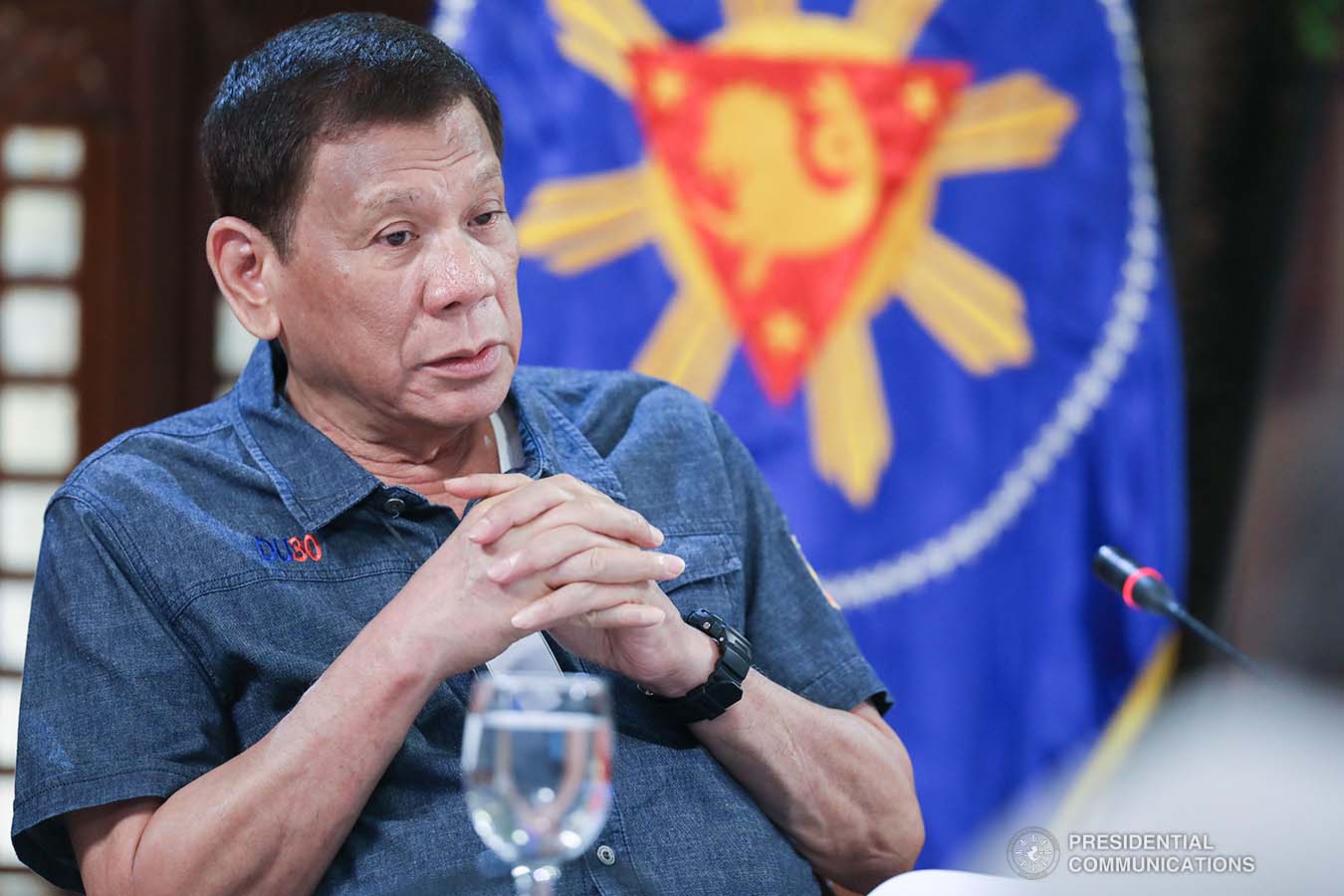Headline
PRRD only against face-to-face classes: Palace

FILE: President Rodrigo Roa Duterte at the Malago Clubhouse in Malacañang on May 11, 2020. ACE MORANDANTE/PRESIDENTIAL PHOTO
MANILA – Malacañang on Tuesday clarified that President Rodrigo Duterte was only against the opening of face-to-face (F2F) classes until there is an available vaccine against the coronavirus disease 2019 (Covid-19).
“Habang wala pang bakuna at habang wala pa tayo sa new normal, ‘yung wala na pong community quarantine, hindi pa rin po tayo magkakaroon ng face-to-face classroom na mga klase (While there is no vaccine and while we have not reached the new normal, which means no more community quarantine, we will not have face-to-face classes),” Presidential Spokesperson Harry Roque said in a virtual presser.
Roque explained that Duterte would only allow F2F classes once all areas in the country are out of all levels of community quarantine and under a “new normal” by August 24.
However, if the Covid-19 infection rate continues to increase, he said schools would have to implement “blended” and “flexible” learning schemes.
“Kung hindi po talaga dumating ang new normal at hindi mai-lift ang community quarantines, hindi naman po ibig sabihin na hindi na mag-aaral ang ating mga kabataan (If the new normal does not happen and the community quarantine would not be lifted, it does not mean our youth will no longer have classes),” Roque said.
He said the Department of Education (DepEd) would have to use not just the Internet but also television and radio to ensure that classes resume among students learning from a distance.
“Meron po tayong tinatawag na blended learning. Sang-ayon po kay Secretary (Leonor) Briones ng DepEd, gagamitin po natin ang telebisyon, ang radyo, at ang Internet para ipagpatuloy po ang edukasyon ng ating mga kabataan (We have what you call blended learning. According to Education Secretary Briones, we will use our television, radio, and Internet to continue the education of our youth),” Roque said.
Acknowledging that not all students have ready access to computers and the Internet, he explained that television and radio are expected to facilitate distance learning for the underprivileged.
Roque said local government units, particularly at the barangay level, could also establish “makeshift classrooms” in centers where physical distancing could be observed.
“Ang radyo po at TV, ‘yan po ang sisiguro na wala pong diskriminasyon laban sa mga mahihirap (The radio and TV will make sure that there is no discrimination against the poor),” he said, adding that the bottom line is that the government would not compromise the health of students.
Roque also saw the need to expand the Free Internet Access in Public Places Act, also known as Republic Act 10929, which provides free Internet access in all public places, such as national and local government offices, public basic education institutions, and public parks.
“Siguro po kinakailangan pabilisin at palawakin pa itong programa ng libreng Internet dahil importante ngayon na lahat ng kabataan na kinakailangan mag-aral ay mayroon ding Internet (Perhaps there is a need to speed up and expand the reach of the free Internet program because it is important for students to have free Internet),” he said.
Meanwhile, Roque expressed hope that all areas in the country would be able to transition to a new normal before classes resume on August 24.
He also urged the public to stay indoors, observe minimum health standards, physical distancing, and wearing of face masks to help slow down the country’s infection rate.
In a public address late Monday night, Duterte said it would be “useless” to talk about the opening of classes, particularly holding it F2F without a vaccine because it would endanger the lives of students.
The President said allowing students to return to school without getting vaccinated would “spell disaster”.
“I will not allow the opening of classes na magdikit-dikit ang mga bata. Bahala na hindi makatapos (if students have to stay close to one another. Never mind if they don’t finish school),” he said.
Duterte explained that he wanted to ensure that students were vaccinated before they return to school.
“Unless I am sure that they are really safe, it’s useless to be talking about opening of classes. Para sa akin bakuna muna. Pag nandiyan ang bakuna, okay na (For me, there should be a vaccine first. When it’s available, then it’s okay),” he said.
The DepEd has set School Year 2020-2021 to open on Aug. 24, 2020, and end on April 30, 2021.
Private schools and state or local universities and colleges (SUCs/LUCs) will be allowed to open classes earlier than August 24, provided that “no face-to-face classes” would be allowed.
Higher education institutions (HEIs) using full online education can open anytime, while those using flexible learning can open anytime in August.





















